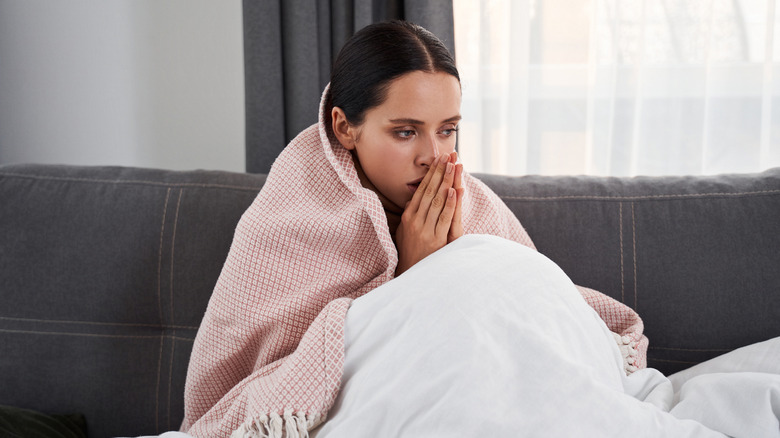What Does It Mean To Be Immunocompromised?
Catching your coworker's cold or the nasty bug that had your partner down last weekend is, yes, annoying. But likely not life-threatening. Those of us who have a strong immune system are able to battle the bacteria and viruses that are poised to keep us in bed throwing a pity party for one. But for many, that irritating virus going around the office can become life-threatening. And now that we are in the midst of a pandemic, it is especially important to look after those who are immunocompromised.
But what does this medical term even mean? Penn Medicine breaks it down: Think of your body's immune system as an army. It's set up to defend you from potentially threatening outside invaders. If your army is smaller than average or unfit to fight a battle, it means you are immunocompromised.
According to the National Cancer Institute, immunocompromised can be defined as the "reduced ability to fight infections and other diseases." This could be the case for many reasons. Your immune system can be significantly weakened if you have conditions such as HIV, diabetes, or specific genetic disorders. Your army can also be reluctant to fight if you are on certain medications such as anti-cancer drugs, stem cell treatment, or the recipient of an organ transplant.
Not everyone has the same fighting chance against diseases
Even if you are feeling healthy, the natural process of aging can be the reason behind a weakened immune system. PRB states that 16% of the population in the U.S. is over 65 years of age. "People can develop underlying conditions or medical problems as they get older," noted Dr. David Porter, director of cell therapy and transplantation at Penn Medicine. He continued, saying, "And sometimes, their immune system doesn't respond normally to infections because it doesn't work as well as a younger person's. Therefore, they may get sicker when they have the flu or COVID-19."
There are many reasons why a person's immune system could be compromised. Consider taking extra care to look out for yourself and others, especially during the pandemic. And be aware that not everyone has the same fighting chance against diseases. As Dr. Porter cautioned, "People with weak immune systems may not be able to fight COVID-19 as well as others."


